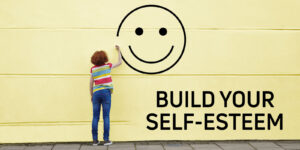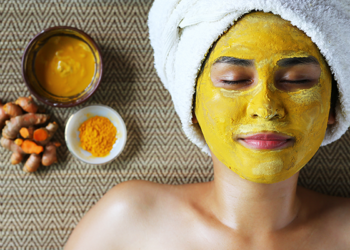A lack of self-acceptance can halt you in all aspects of your life. It has an impact on your confidence and can keep you from reaching your full potential. People who have a high sense of self-acceptance are more resilient to criticism. They recognise that it is acceptable to accept themselves while also striving for continuous self-improvement.
But what exactly is self-acceptance? And why are some people more accepting of themselves than others? What can it do for you, and how can you cultivate more of it? Let’s explore further!
What is Self-Acceptance?
Accepting yourself and all of your personality traits exactly as they are is the act of self-acceptance. You accept all of it regardless of how positive or negative they are. This includes both your physical and mental characteristics. Self-acceptance entails acknowledging that your worth extends beyond your personal characteristics and actions. This is referred to as radical self-acceptance.
Self-acceptance boosts your self-esteem and makes you less vulnerable to criticism. One has to completely accept every aspect of themselves unconditionally and without reservation. To achieve self-acceptance, you must learn to accept the aspects of yourself that you find negative or unappealing.It’s also critical to recognise and celebrate your positive qualities and accomplishments. Reviewing your goals and your progress toward them helps you to remember your strengths.
This is why so many of us have trouble accepting ourselves. We have a tendency to hide, ignore, and reject the aspects of ourselves that we find unacceptable. Rather than accepting them, we would prefer to change them. Although it may seem counterintuitive, total self-acceptance can actually assist us in changing aspects of ourselves that we dislike. Being aware of one’s limitations is the first step toward personal development and a sign of emotional intelligence.

Accepting our flaws and giving up on changing them isn’t the same as self-acceptance.
On the contrary, it entails being aware of our flaws while remaining emotionally detached from them. This self-awareness can aid in the improvement of our behavior and the formation of better habits.
During this journey, this question popped up on my mind and I feel it is relevant;
How does self-acceptance affect my day-to-day life?
Self-acceptance aids in emotional regulation.

The part of your brain that controls your emotions can be affected by a lack of self-acceptance. As a result of increased anxiety, stress, or anger, this can lead to mental imbalance and emotional outbursts. It also has an impact on your psychological and emotional health. It keeps you focused on your flaws, and negative thoughts lead to negative emotions.
Self-acceptance, on the other hand, is linked to more positive emotions and psychological well-being. Acceptance of yourself can improve your mood and protect you from the negative effects of stress and depression.
Self-acceptance makes it easier to forgive yourself.

Self-acceptance allows you to be less critical of yourself. It aids in the development of a more positive, compassionate, and balanced self-perception. Our inability to accept and forgive ourselves causes us to disintegrate into various parts.
These two parts — the one who needs forgiveness and the one who needs forgiveness — are at odds with each other. Self-acceptance can assist you in bridging the gap between them, allowing you to forgive yourself and move on.
This is necessary for your health, as dwelling on the past will keep you trapped in a cycle of negative thoughts and feelings.
Self-acceptance boosts your confidence.

Self-acceptance can give you more self-assurance. It assists you in realising that your perceived flaws do not define you or your worth. You are more likely to take action despite your fears if you are confident. Lack of self-acceptance, on the other hand, can hold you back and prevent you from pursuing your goals.
Self-acceptance enables you to recognise that failure does not define you and that failure is always a learning opportunity on the road to success. You can gain more independence if you have more confidence. It enables you to make decisions for yourself without the need for others’ approval. See how it is all connected? 🤯*mind blown*
Lastly, Self-acceptance helps you be yourself

You try to hide, censor, or repress your true self when you don’t have self-acceptance. You may feel drained as a result of this.
Self-acceptance allows you to present yourself more authentically without fear of being judged by others. In essence, when you accept yourself, you are free to be who you truly are.
Now that you have read about how self acceptance can change our ability to live a different life with more purpose; in Part 2, we will explore exercises and how we can incorporate certain lifestyle changes to achieve radical self acceptance. Stay tuned for more!
Follow us on Instagram, Facebook or Telegram for more updates and breaking news.








